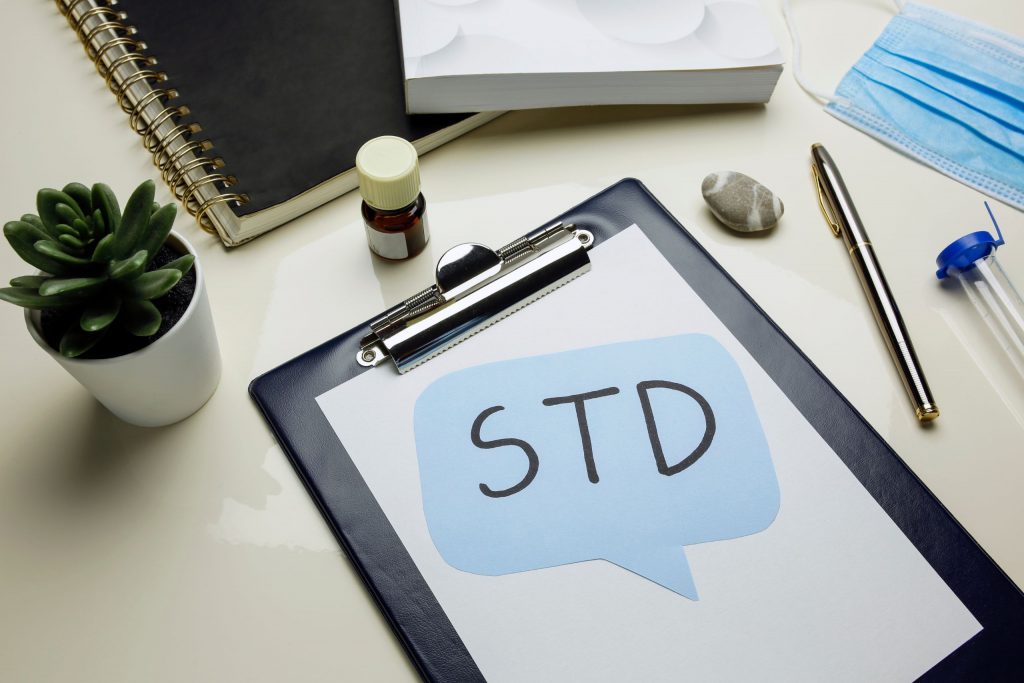Health First: Diseases That Make Sex A Risky Affair

Giving health and well-being first priority helps to create the safe and stimulating environment of a loving relationship. While sexual activity may enhance overall health, numerous medical conditions might endanger not only one’s partner but also oneself. Sexual activity may worsen previously existing medical disorders like sexually transmitted infections or cardiovascular diseases or have negative repercussions. Couples should be honest about their health and seek medical advice as necessary. This page seeks to list important medical disorders that could call for avoiding sexual activity for safety concerns. Understanding these situations helps people to make wise decisions that preserve their health and the well-being of their partners, therefore promoting the emotional and physical components of intimacy in their relationships.
Sexually Transmitted Infections (STIs)
Easy transmission of sexually transmitted illnesses (STIs) like HIV, gonorrhea, chlamydia, and syphilis via sexual contact is achieved. This covers mouth, anal, and vaginal sex. For example, someone can have gonorrhea or chlamydia without ever knowing as these infections typically go without symptoms. Though there are no apparent symptoms, HIV may be transmitted by bodily fluids; syphilis can cause easily ignored sores. This is why wearing dental dams or condoms is so important for protecting your partner and yourself during sex.
Regular testing helps you to keep your health and safeguard your relationships. If you have a STI, you definitely should start treatment immediately soon. While most STIs may be sufficiently cured with medication, untreated infections might lead to serious medical issues down road. Therefore, do not hesitate to see a medical practitioner for direction and treatment decisions. Remember, giving your sexual health first priority not only improves your own but also helps to preserve the well-being of those you love.

Active Herpes Outbreaks
During an active herpes outbreak, sexual activity greatly increases the risk of transmission because the virus is most active and may be readily transferred via skin-to—contact. When blisters or sores develop, the virus concentrates in particular places, which facilitates the passing on by the source partner to their mate. Avoiding sexual activity during an epidemic is especially important as the virus may be transmitted asymptomatically even in cases without obvious symptoms. This lessens the possibility of infecting other people.
Herpes may be managed and hazards can be reduced mostly by antiviral therapy. Medications like valacyclovir may help to minimize the frequency of future outbreaks, shorten the length of current ones, and lessen their intensity. These antiviral medications may also help to lower the risk of passing the infection on to sexual partners. Apart from good cleanliness and honest communication with partners about the virus, most persons with herpes may lead normal and satisfying sexual life by properly controlling symptoms. Remember, consulting a healthcare professional may provide individualized guidance and encouragement.
Hepatitis B and C
Especially in cases of wounds or sores in the vaginal region, liver illnesses like Hepatitis A, B, and C may be transmitted via certain kinds of sexual contact. Hepatitis B really worries me as it may be passed via blood and semen among other body fluids. Unprotected intercourse raises the risk of transmitting these diseases, hence it’s important to think about safer sex practices like condom use. Even with Hepatitis A, oral-anal contact in sexual activities may still provide a danger even if contaminated food or water is more usually the means of dissemination.
Available for Hepatitis A and B, vaccines provide excellent defense against these infections. Should you intend to have sex, vaccination will greatly reduce your risk. Although there isn’t currently a vaccination for Hepatitis C, if infected therapies are successful and may clear the virus. Maintaining everyone’s safety also depends on regular visits and honest discussions about sexual health with spouses. Thus, keep in mind that among the best strategies to guard yourself and your loved ones against liver diseases are safe sex practices, vaccination, and knowledge-based behavior.
Cardiovascular Conditions
Regarding sexual activity, those with serious cardiac diseases—such as uncontrolled hypertension or those who recently had a heart attack—should exercise extra caution. This is mostly because sexual activity is a kind of physical effort, which may strain the heart especially. Like any intense workout, it might raise blood pressure and cause your heart rate to increase, hence perhaps causing discomfort or even major problems for someone with underlying heart problems.
Furthermore, improper management of cardiac diseases may aggravate symptoms like weariness, dyspnea, or chest discomfort by means of the physical activity engaged in sex. You have to pay attention to your body and let your doctor know what is safe for you. They may help you to approach intimacy in a manner that feels secure and comfortable so that both you and your spouse may enjoy the experience free from needless hazards. Remember always that slowing down and being aware of your limitations can help you to keep your heart healthy while still allowing you to connect with your spouse.
Pelvic Inflammatory Disease (PID)
Increased sexual activity might aggravate greatly the sexually transmitted diseases (STIs). Particularly if preventative precautions aren’t in place, someone who is sexually active runs more risk of contracting diseases such bacterial vaginosis, trichomonas, or even HIV. Sexual activity without appropriate protection—such as dental dams or condoms—can cause these diseases to spread among partners. This may lead to a loop wherein the infection not only spreads but also becomes more severe with every contact, therefore possibly causing major medical problems.
See medical attention right away if you believe you have a STI or are having symptoms. Early diagnosis supports your general health as well as the health of your spouses and helps avoid complications. Apart from treatment, allowing your body some rest becomes quite important for recovery. By postponing sexual activity, you let your body recover and lower your chance of sharing the illness. Remember, asking for assistance is a show of strength; hence, consulting a healthcare professional can lead you through the process and enable you to recover your health.

Conclusion
Promoting general well-being and properly treating any medical concerns depend on giving health top priority and keeping open contact with both spouses and doctors. People, especially those from underprivileged areas, should obtain medical advice catered to their specific requirements including regular exams and talks on sexual health. Establishing a trusting connection with healthcare experts helps people to freely express their worries, therefore guaranteeing they get the required treatment and also helps to promote safer and better relationships. By being proactive in health management, one not only improves personal well-being but also helps create an educated and encouraging surroundings for everybody.






